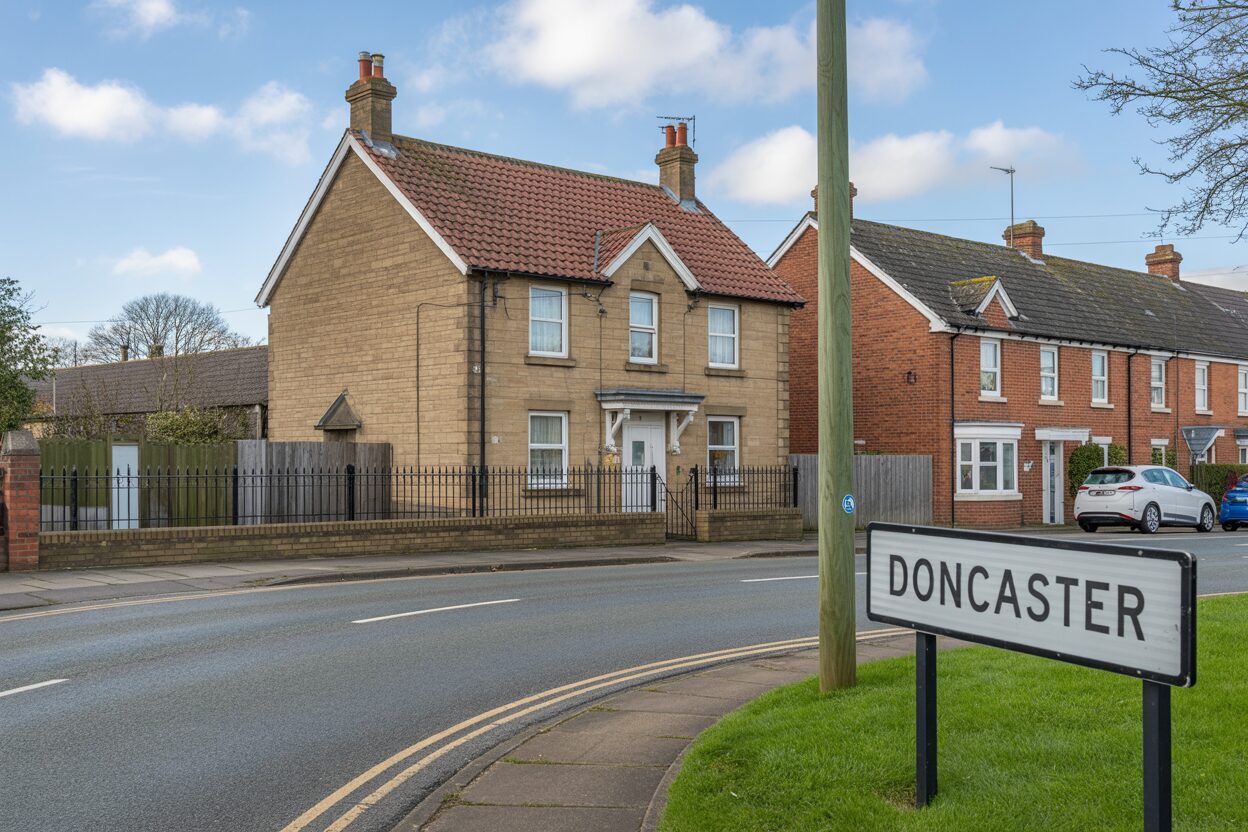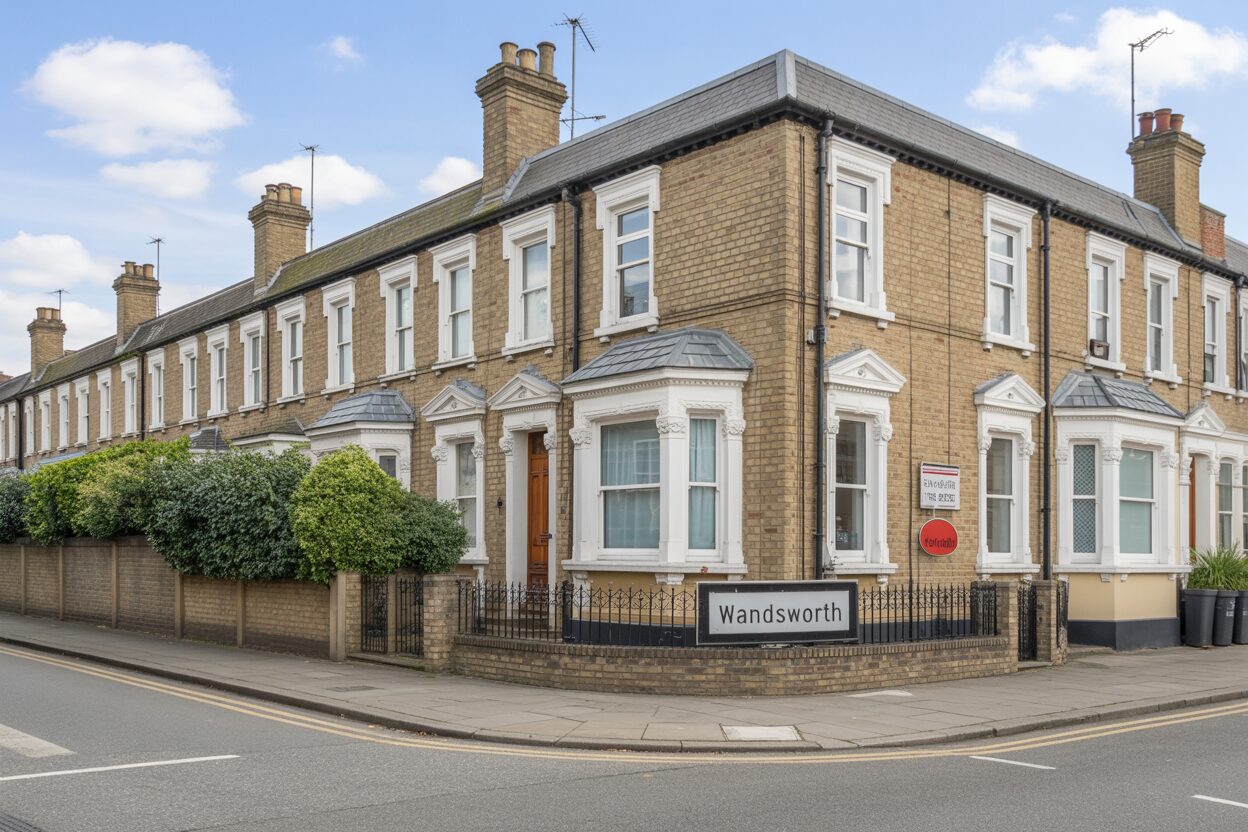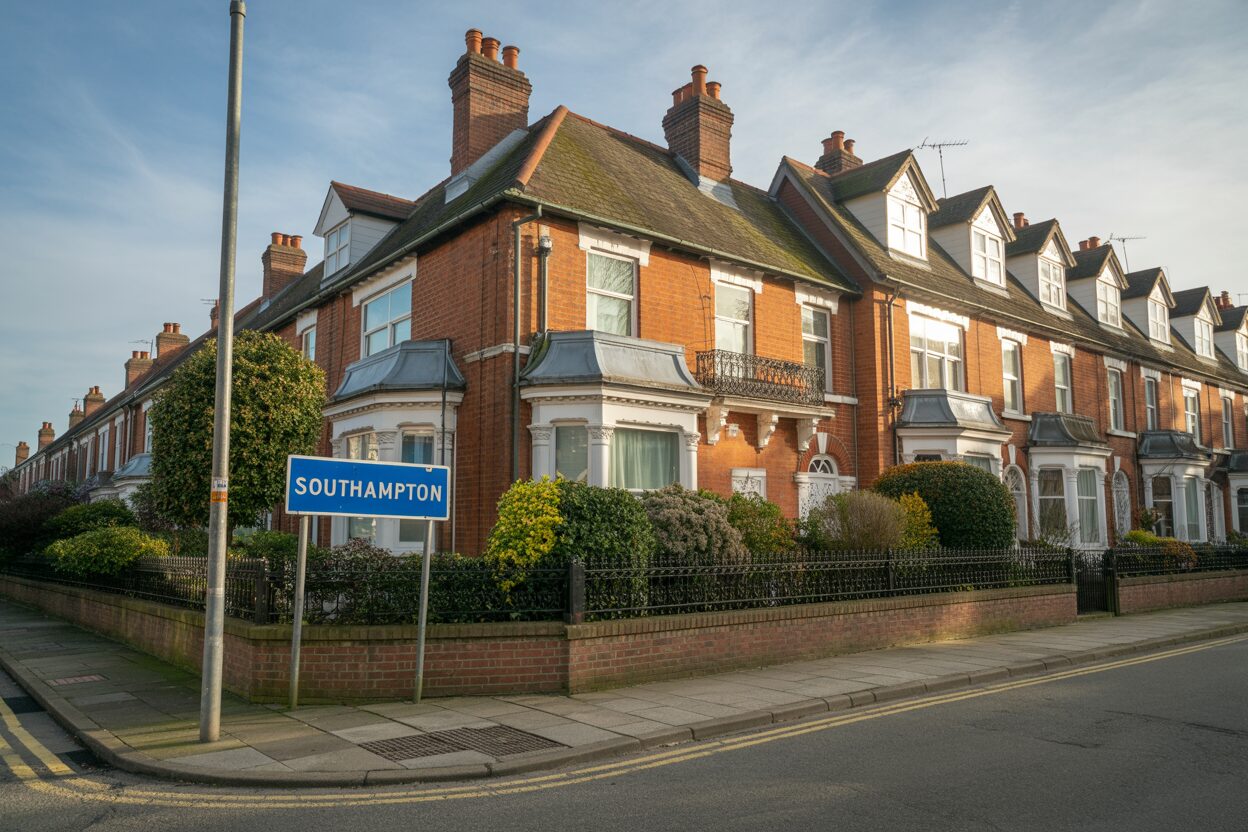
According to Doncaster Council, there are 835 houses in multiple occupation (HMO) in its catchment area. Numbers grew by 22 in the year, a 2.6% increase. Out of the 143,415 dwellings in the borough, 0.58% are on Council Tax records as HMOs. That’s slightly below the national average recorded in the 2021 Census of 0.69%.
In this article, find out the licensing and planning schemes that cover HMOs in the borough.
HMO Architects note: A house in multiple occupation (HMO) is a privately rented property where three or more unrelated people share facilities like kitchens and bathrooms. The legal definition comes from the Housing Act 2004.
HMO property licensing in Doncaster
There are two property licensing schemes in Doncaster:
- Mandatory HMO licensing (borough-wide)
- Selective licensing (Hexthorpe only)
Mandatory HMO licensing scheme
As with the rest of England, landlords must have a mandatory HMO licence if they have a large HMO. A large HMO property has five or more people from two or more households.
Selective licensing scheme
Selective licensing is a special power councils have to raise property management and safety standards in designated areas. They generally only use these powers to tackle issues like poor living conditions and anti-social behaviour.
Doncaster Council has one selective licensing scheme in Hexthorpe. If you rent out any property in that area (not just HMOs), you may need a licence. Hexthorpe’s scheme runs 1 March 2022 to 28 February 2027.
Additional licensing scheme (expired)
Additional licensing schemes allow councils to require the owners of smaller HMOs with three to six people to apply for an HMO licence, just like the owners of a large HMO.
From 1st October 2018 until 30th September 2023, Doncaster ran an additional licence scheme in the following areas:
- Doncaster Town Centre (parts)
- Hyde Park
- Balby North
- Wheatley
- Intake
Landlords with 4-bed HMOs and section 257 HMOs in those areas needed an additional licence to operate legally.
Although the scheme has ended, landlords with an additional licence must comply with all the conditions of that licence until it expires.
Applying for HMO licensing in Doncaster
First, choose the type of licensing that’s correct for your property. Then, complete the application form and include the documentation below to show you meet the council’s legal requirements:
- Domestic electrical test certificate
- Emergency lighting test certificate
- Fire alarm test certificate
- Fire safety risk assessment for the premises
- Gas safety test certificate (if gas is provided in the premises)
- Planning consent for all HMOs in the Article 4 area
- Planning consent if more than 6 persons (borough-wide policy)
- EPC certificate (to show you meet minimum energy efficiency standards)
- Scaled plan with room sizes, amenities, and the maximum number of occupants
- Management plan (contact details and whether you or a managing agent)
The fees to obtain a licence are as follows:
| Base charge (up to 5 bedrooms) | Per additional room | |
| New application | £971 | £66 |
| HMO renewal | £905 | £66 |
The fee is payable in two parts. You pay £200 on application and the balance when the council approves your application and adds your property in its HMO licence register.
Other charges include:
- £44 if the council asks you to send extra correspondence to you to complete your application.
- £50 late payment fee, if you don’t send in the second part of your payment on time
After you have got your licence, you’ll have to agree to regular access by HMO inspectors to check ongoing compliance.
HMO Architects note: If you’re buying in Doncaster but live far away from the property, there is a wide selection of managing agents across South Yorkshire you can appoint. They’ll represent you in person, market your property so you find the right tenants and advise you of any potential breaches of regulation like fire safety issues.
Applying for HMO planning permission in Doncaster
There are two operative planning routes in Doncaster. Which one you use depends on headcount and whether your property is subject to an Article 4 Direction. The two choices are:
- C3 (dwellinghouse) to C4 (small HMO, 3 to 6 people): Converting a standard home into a small HMO is a permitted development outside the Article 4 areas. You don’t need planning permission for it unless you’re carrying out major physical works like loft conversions or extensions.
- Any current use class (including C3) to sui generis (for HMOs, 7+ people): These developments always require you to request HMO planning permission.
The following are Article 4 Direction areas in Doncaster:
- Town
- Town Fields
- Wheatley
- Hexthorpe
- Balby
- Wheatley Hills
- Intake
- Belle Vue
If you wish to convert a C3 to a C4 in any of these areas, you won’t be exempt from the need to apply for full planning permission. The Article 4 Direction came into force on 14 October 2019.
The council has released a housing standards document for HMOs in its area. They are detailed, setting out expectations on:
- Bedroom minimums (6.51 m² for one adult; 10.22 m² for two adults)
- Kitchen, living and bathroom conditions (for example, kitchen floorspace per person and when extra dining space is needed)
- Communal space dimensions
If you fail to adhere to these, your application will almost certainly be refused.
In their Local Plan, Doncaster Council’s policy towards HMOs is:
- There must be enough room for bins, safe cycle storage, and parking (unless in a highly sustainable location)
- An HMO must not cause excessive noise, loss of privacy (like overlooking gardens or windows), or other harm to residential amenities
- The council discourages ground or basement self-contained rooms in flood zones
- No overconcentration of HMOs (include two side by side, a single house or flat sandwiched between two HMOs, more than two HMOs in any row of 20 homes and other restrictions)
HMO Architects note: Remember that you, as the landlord, almost always pay council tax and other bills like utilities and broadband so remember to include them in your budget.
Political and planning temperature in Doncaster
Doncaster Council is cautiously positive about HMOs. They’ll back well maintained HMOs that meet and exceed their minimum requirements but they’re keen to stop clustering from changing the feel of neighbourhoods.
From a landlord’s point of view, they could have kept additional licensing but they scrapped it in 2023. The selective licensing scheme they have brought in is time-limited and in highly localised areas. That signals a preference for place-based intervention where problems persist, rather than borough-wide extensions. They are much more open on issues like HMO concentration than other councils, too.
HMO Architects: partner to landlords, developers and investors in Doncaster
According to Home.co.uk, average property rental prices in the city of Doncaster is £734pcm.
Two- and three-bedroom flats rent out at £821 and £925 on average which will stretch many students’ and young professionals’ budgets. The average room price is £486pcm so, when council tax and other bills are included, HMO living may be 50% more affordable.
This makes non self contained accommodation like HMOs a more accessible option for renters priced out of self-contained flats.
HMO Architects has extensive experience working with landlords, investors and developers across the UK. Recent stand-out Northern England and Midlands projects include:
- Fletcher Street, Manchester (12 units): We re-planned a tired nightclub into a twelve-bed HMO with a modern, attractive and efficient layout. The work increased the value of the property from £260,000 to £1.2m and achieved a monthly rental of £10,800.
- South Bank Road, Liverpool (6 units): We converted a run-down mid-terrace property into a six-bed HMO. The quality of the finish and the location turned this into a highly profitable project for our client as the value of the building soared from £85,000 to £280,000 and the rent from £550pcm to £2,800.
- Hobart Road, Cambridge (7 units): We re-planned a commercial property into a seven-bed HMO with a planning-led approach for a sui generis layout. We produced the full drawings and compliance pack and set a robust spec that balances livability with return on investment. On completion, the value of the property increased from £550,000 to £950,000 and the rental income jumped from £2,200pcm to £8,400.
If you’re investing in your first Doncaster HMO or building up a portfolio in the city and the surrounding areas, partner with HMO Architects. We offer a full service to clients, featuring:
- Investment strategy calls: Find out how to increase profitability across your properties to accelerate your income goals. Ryan Windsor, our Investment Director, pioneered the BRRR method to scale rental returns. Create a clear, step-by-step strategy for expanding your investments with an expert call from Ryan. He’s helped over 2,200 clients across his career and began building his own extensive property portfolio when was just 17.
- Pre-buy and design feasibility studies: Find out how viability your project is by speaking with Giovanni Patania, our Architect Director, and his team. Before you invest time or money, get expert clarity on whether your property idea stacks up.
- HMO licensing team: We have a 97% planning permission success rate across 200 councils.
- Multiple internal experts: Everything you need from before the first brick is laid right up until completion. Find out about out architecture design to building regs and interior design to BR Principal Designer services.
Check out our detailed HMO legal FAQ and find out more about the true cost of unlicensed HMOs on our website. Discover whether HMOs, buy to lets or stocks and shares deliver the best return.
View our range of development finance case studies to see how we’ve helped clients turn their ideas into sound investments. Read customer stories on HMO, flat, holiday let and housing projects.
Call us on 01223 776 997 or email us directly.
Giovanni is a highly accomplished architect hailing from Siena, Italy. With an impressive career spanning multiple countries, he has gained extensive experience as a Lead Architect at Foster + Partners, where he worked on a number of iconic Apple stores, including the prestigious Champs-Élysées flagship Apple store in Paris. As the co-founder and principal architect of WindsorPatania Architects, Giovanni has leveraged his extensive experience to spearhead a range of innovative projects.




